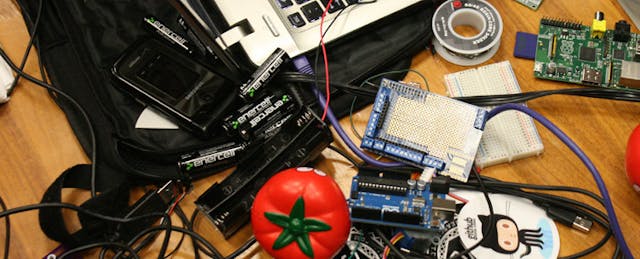Edtech is about the use of technology in education, but does it include technology education? Should it include computer science education?
"Edtech" is an all-inclusive term, and computer science is thrown in along with iPad apps, blended learning, BYOD strategies and everything else. However, computer science education sometimes appears to be that distant cousin in the edtech family; it must be included in the party but no one really knows how to deal with it.
Most of the edtech community is interested in "using technology" to improve student learning in what is already being taught in our schools--math, reading, science, etc. We are excited that our students now use a browser to do research, Google docs to write and online games for math drills. We are happy that our teachers use a cool app to create a spelling quiz, or a YouTube video to teach math.
But while these are all significant steps in using technology to enhance traditional learning, we are not yet changing the "what and how" in student learning. Students and teachers are still consuming technology, but not necessarily understanding how to use it to create their own tools.
One of the critical catalysts for edtech was Seymour Papert's work and the invention of the Logo programming language. Papert's milestone book, published in 1980, Mindstorms: Children, Computers, and Powerful Ideas, showed us how computers could completely change how students learn. Papert wrote:
“In my vision, the child programs the computer and, in doing so, both acquires a sense of mastery over a piece of the most modern and powerful technology and establishes an intimate contact with some of the deepest ideas from science, from mathematics, and from the art of intellectual model building.”
It is surprising to see how far removed we are from Papert's vision.
Instead of teaching children programming as their first computer lesson, we serve our students ready-made software, mostly doing what Papert called "using computers to program children." Instead of teaching programming to every grade-schooler, we teach it to the select few, usually in middle or high school. Computer science education is reserved for the few who attend private schools, tech-rich public schools or summer computing camps.
Fortunately, change is on the way. And that means there’s hope that we may finally realize Papert’s vision and change the "what and how" of learning with computers.
A confluence of actors are laying the roads for computer science education into the classroom. Startups like CodeHS and CoderDojo have launched initiatives to introduce coding in and after school. Codecademy and MOOCs offered by the likes of Udacity and Coursera are bringing coding to the masses. Edtech blogger Audrey Watters, who frequently writes about computer science topics, lists “Learning to code” as one of her top edtech trends for 2012.
The last Computer Science Education Week (CSEdWeek), held in December, generated participation from hundred of thousands of people worldwide. As part of of my pledge for CSEdWeek, I shared my own experience teaching computer science to approximately 500 sixth graders in our public school district in California.
On the ground, organizations like ISTE are increasingly focused on highlighting the importance of computer science. From its recent push on computational thinking, the creation of standards for computer science educators, a computer science thread in its annual conference, and even a journal for computing teachers, ISTE is actively calling this subject into the attention of its thousands of educator members around the world. I believe the ISTE conference can become the logical place to advocate and learn about computer science education. It already draws a sizable community of edtech enthusiasts -- school administrators, teachers and industry. It is the best place to truly integrate edtech and computer science.
As computer science education becomes an integral part of edtech, and of education itself, there are many questions to be asked. Why do we need computer science education? Should everyone just learn to code? At what age should we teach it? And where will we find the teachers to teach it?
If computer science is a part of edtech, we should ask these questions right here in the edtech media. As I continue to teach computer science, I plan to explore these questions in the coming months and share my findings. It is exciting to know that the wider edtech community is joining in the computer science discussion; it is an exciting time to be a computer science educator.


